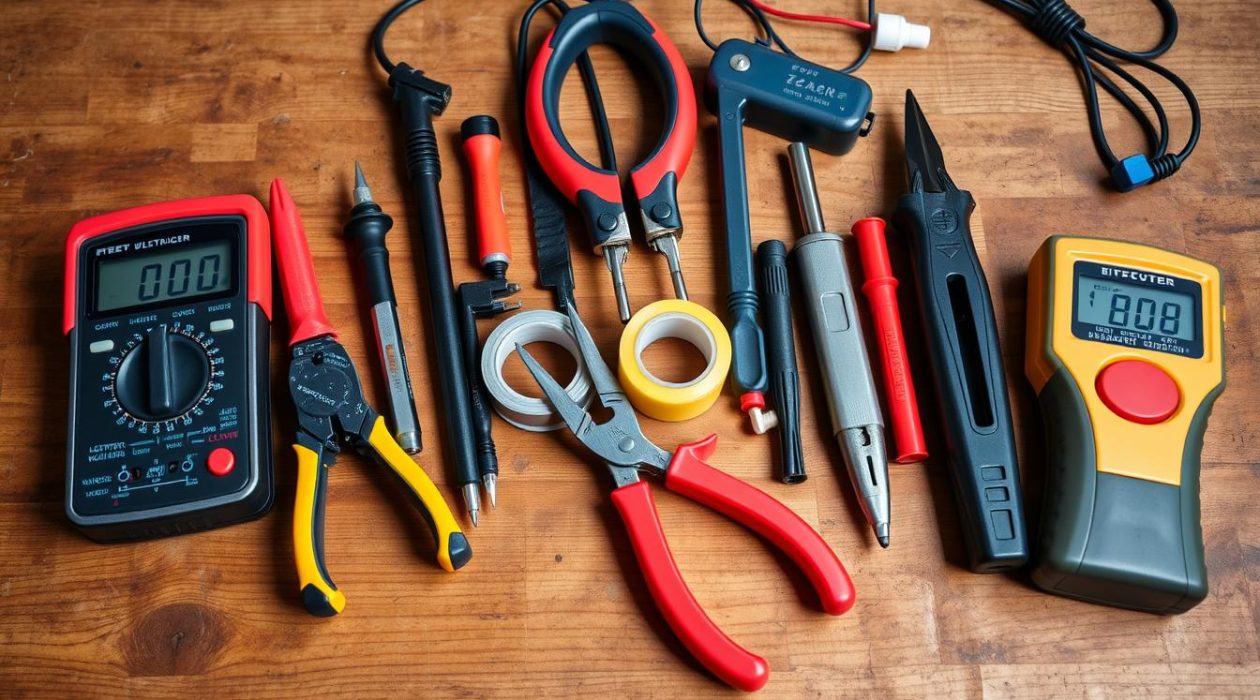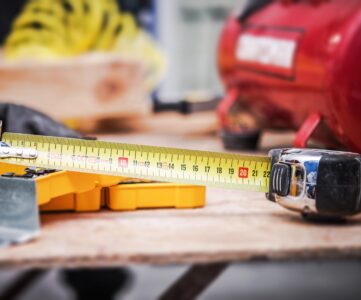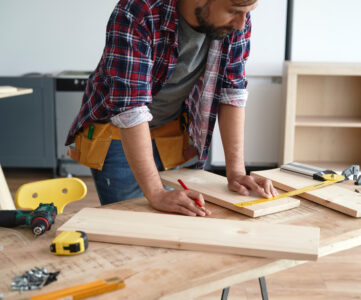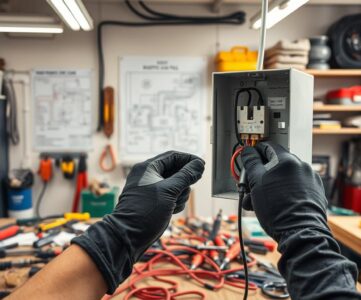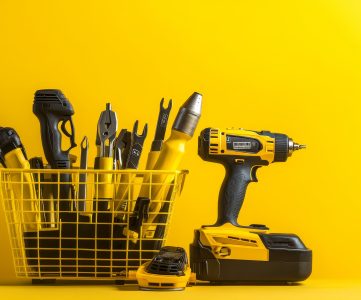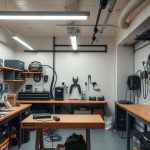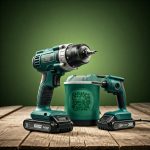Having the right Electrical Tools is key for tackling electrical projects. Whether you’re a DIY fan or a pro, quality tools matter a lot. The right tools ensure your projects are done well and safely.
In this article, we’ll dive into the world of Electrical Tools. We’ll cover hand tools and power tools to help you build your DIY arsenal. From the basics to advanced tools, we’ve got you covered for your electrical projects.
We aim to give you a detailed guide to essential Electrical Tools. This will help you choose the right tools for your projects. With the right tools, you can confidently tackle any electrical project, knowing you have what you need.
Key Takeaways
- Investing in quality Electrical Tools is essential for safe and efficient project completion
- Hand tools and power tools are must-haves for any DIY electrical project
- Choosing the right tools can make a significant difference in the outcome of your projects
- Understanding the importance of quality Electrical Tools can help you make informed purchasing decisions
- Building your DIY arsenal with the right tools can empower you to take on any electrical project
Understanding the Importance of Quality Electrical Tools
Having the right tools is key for safe and efficient electrical work. Quality tools may seem pricey, but they last longer and are safer. They can also prevent accidents and electrical shocks. This is why safety equipment is so important for both DIY fans and pros.
Choosing the right tools for your project is vital. For example, a wire stripper is needed for wire insulation, and a multimeter for voltage and current checks. Knowing what tools you need helps ensure a safe and efficient job.
When picking quality electrical tools, look for durability, accuracy, and safety features. A good multimeter should be accurate and tough. Also, safety equipment like gloves and safety glasses are crucial for avoiding injuries. Quality tools and safety equipment mean you can work confidently and safely.
Investing in quality electrical tools is a must for safety and efficiency. By knowing what tools you need and using safety equipment, you can do your projects safely. Whether you’re a DIYer or a pro, quality tools are a smart choice for safe and efficient work.
Safety First: Essential Protective Equipment
Working with electrical tools requires safety equipment to avoid injuries and keep the work area safe. This includes gloves, safety glasses, and hard hats. Also, tools like voltage testers and circuit analyzers are key for electrical testing to spot dangers.
Using the right safety equipment and following safety rules can make a workplace safe. For example, insulating gloves protect against shock, and safety glasses guard against eye injuries. Hard hats shield the head from falling objects or electrical dangers.
- Voltage testers
- Circuit analyzers
- Insulating gloves
- Safety glasses
- Hard hats
These tools help find and prevent electrical dangers. By choosing the right safety equipment and doing proper electrical testing, people can work safely and avoid injuries.
| Equipment | Purpose |
|---|---|
| Voltage testers | Identify potential electrical hazards |
| Circuit analyzers | Analyze electrical circuits for safety |
| Insulating gloves | Protect against electrical shock |
By focusing on safety equipment and electrical testing, we can make our work environment safe. This reduces the chance of accidents and injuries.
Must-Have Hand Tools for Electrical Work
Having the right hand tools is key for electrical work. Whether you’re a pro or a DIY fan, quality tools are vital. We’ll look at essential tools like wire strippers, screwdrivers, and cable management tools.
These tools help with tasks like stripping wires and measuring cables. They’re also crucial for installing tools, like screwdrivers and pliers, for securing connections.
Wire Strippers and Cutters
Wire strippers and cutters are basic for any electrical job. They remove insulation from wires, making connections secure.
Screwdrivers and Pliers
Screwdrivers and pliers are versatile. They’re used for driving screws and gripping objects. They’re key for installing and tightening connections.
Measuring and marking tools, like tape measures and markers, are also vital. They help measure and mark cables for accurate connections.
| Tool | Description |
|---|---|
| Wire Strippers | Used to strip insulation from wires |
| Screwdrivers | Used to drive screws and secure connections |
| Pliers | Used to grip and bend objects |
Investing in these essential tools will prepare you for any electrical task. Always choose high-quality tools for safe and efficient work.
Power Tools That Every DIY Electrician Needs
Having the right power tools is key for electrical projects. A drill is great for drilling holes and driving screws. Saws, like circular or reciprocating saws, are essential for cutting materials. Rotary tools are perfect for precise work, like grinding or sanding.
Diagnostic equipment is also vital for fixing electrical issues. Multimeters measure voltage, current, and resistance. Voltage testers check if there’s electricity in a circuit. With these tools, DIY electricians can work safely and efficiently.
These tools help with big tasks like driving screws, drilling through concrete, and stripping wire insulation. Investing in these tools and diagnostic equipment helps DIY electricians do better work. They ensure projects are done with precision and accuracy.
Electrical Testing and Diagnostic Equipment
Electrical testing and diagnostic tools are key for keeping electrical systems safe and efficient. They help spot problems early, so repairs can be done quickly. We’ll look at various tools like multimeters, voltage testers, circuit testers, and wire tracers.
Having the right tools for electrical testing is vital. These tools let users check voltage, current, and resistance. They help find and fix issues to avoid electrical dangers.
Multimeters and Voltage Testers
Multimeters and voltage testers are must-haves for electrical checks. They measure important electrical values. These tools are used in many places to find and fix electrical problems.
Circuit Testers
Circuit testers check if electrical circuits are working right. They find problems like short circuits and ground faults. Using these testers ensures electrical systems are safe and working well.
Wire Tracers and Tone Generators
Wire tracers and tone generators help find wires in complex systems. They send a signal that can be followed with a receiver. This is great for finding hidden wires.
| Tool | Description |
|---|---|
| Multimeter | Measures electrical parameters, such as voltage, current, and resistance |
| Voltage Tester | Verifies the presence of voltage in an electrical circuit |
| Circuit Tester | Verifies the integrity of electrical circuits |
| Wire Tracer | Locates and identifies wires in complex electrical systems |
Specialized Installation Tools for Advanced Projects
For advanced electrical projects, the right tools are key. These tools help you handle complex tasks with ease. Let’s look at the specialized tools needed for your next project.
Conduit Bending Equipment
Conduit bending equipment is essential for electrical projects. It includes tools like conduit benders. These tools help bend conduits to the right shape and size. The tools you need depend on the conduit type and bend radius.
Cable Pulling Tools
Cable pulling tools are for pulling cables through tight spaces. They include cable pullers that grip and pull cables safely. The tools needed vary based on cable type, size, and length.
Terminal Crimping Tools
Terminal crimping tools crimp terminals onto cables. They ensure a secure connection. The tools needed depend on the terminal type, size, and cable type.
Some important tools for advanced electrical projects include:
- Conduit benders
- Cable pullers
- Terminal crimping tools
- Wire strippers
- Cable ties
With the right tools and knowledge, you can complete advanced electrical projects safely and efficiently.
| Tool | Description | Tool Requirements |
|---|---|---|
| Conduit Benders | Used to bend conduits to the desired shape and size | Depend on the type of conduit and desired bend radius |
| Cable Pullers | Used to pull cables through conduits and other tight spaces | Depend on the type and size of the cable, as well as the length of the pull |
| Terminal Crimping Tools | Used to crimp terminals onto the ends of cables | Depend on the type and size of the terminal, as well as the type of cable being used |
Storage and Organization Solutions
Keeping electrical tools organized is key for a safe and efficient workspace. It’s important to have a spot for each hand tool and power tool. This prevents damage, loss, and accidents. A tidy toolbox or workbench also saves time and boosts productivity.
Popular solutions include toolboxes, workbenches, and pegboards. They help store hand tools like wire strippers and screwdrivers. They also hold power tools such as drills and saws. This way, electricians can work better and faster.
Here are some tips for storing and organizing electrical tools:
- Use a toolbox or workbench with separate compartments for different types of tools
- Label each compartment or section to make it easy to find what you need
- Keep frequently used tools in easy-to-reach locations
- Store less frequently used tools in labeled containers or on pegboards
By using these solutions, electricians can make their workspace safer and more efficient. Whether using hand tools or power tools, good storage and organization are crucial for success.
Maintaining Your Electrical Tools
Keeping your electrical tools in good shape is key to their long life and performance. This means using the right safety gear and following the tool’s needs. Regular cleaning and care can stop damage and cut down on the need for new tools.
Electrical tools need regular care to work well. This includes cleaning and storing them right, and calibrating them when needed. This way, you can make your tools last longer and keep them working for you.
Cleaning and Care Tips
- Use a soft brush to remove dirt and debris from tools
- Store tools in a dry, cool place to prevent rust and damage
- Avoid exposing tools to extreme temperatures or moisture
When to Replace Tools
Knowing when to replace your electrical tools is important for safety and efficiency. If a tool is broken or doesn’t work right, it’s time for a new one. Also, if a tool doesn’t meet safety standards or tool requirements anymore, it’s best to get a new one.
Calibration Requirements
Some electrical tools need calibration to give accurate readings or work right. It’s important to follow the maker’s guidelines for calibration. Also, use the right safety gear during this process.
Building Your Electrical Tools Collection on a Budget
Building an electrical tools collection can seem expensive. But, with some planning, you can get all the tools you need without spending too much. Start with the basics and choose tools that will last a long time.
First, pick out the essential hand tools like wire strippers, screwdrivers, and pliers. Also, think about getting power tools like drills and saws. These can really help you work more efficiently. By focusing on what you really need and looking for sales, you can grow your collection slowly.
Here are some tips for building your electrical tools collection on a budget:
- Buy second-hand tools from reputable sources
- Shop during sales and discounts
- Invest in essential tools first
- Consider renting or borrowing tools for one-time projects
By following these tips, you can build a great collection of tools without spending a lot. Always choose quality and safety when picking tools. And don’t hesitate to look for the best deals.
Common Mistakes to Avoid When Selecting Tools
Choosing electrical tools can be overwhelming. It’s key to avoid mistakes that could harm your safety and work quality. Don’t just pick tools based on brand names. This can lead to poor safety equipment and electrical testing tools.
It’s also important to avoid tool compatibility issues. Using the wrong tools can cause faulty connections and even electrical shocks. Here’s how to avoid this:
- Research the tool’s compatibility with your existing equipment
- Check the tool’s specifications and ratings
- Read reviews and ask for recommendations from professionals
Don’t overlook essential tools. Make sure you have everything you need, including safety equipment like gloves and goggles. Also, get a good electrical testing kit to meet safety standards.
Knowing these common mistakes helps you work safely and successfully. Always choose quality over brand names. Check tool compatibility and invest in the right tools, including safety equipment and electrical testing tools.
| Tool | Compatibility | Safety Features |
|---|---|---|
| Wire Strippers | Compatible with most wires | Insulated handles, safety lock |
| Multimeter | Compatible with most electrical systems | Autoranging, overload protection |
Conclusion: Empowering Your DIY Electrical Projects
Having the right electrical tools is key for DIY electrical projects. You’ll need everything from wire strippers and screwdrivers to more powerful tools. A well-stocked toolbox lets you do your best work.
Focus on quality, safety, and keeping things organized. This way, your tools will last a long time and help you succeed. Good tools mean better skills and projects.
Start building your DIY electrical tools collection now. This guide has given you the knowledge to handle many electrical tasks. Be your own electrician and show off your skills!
